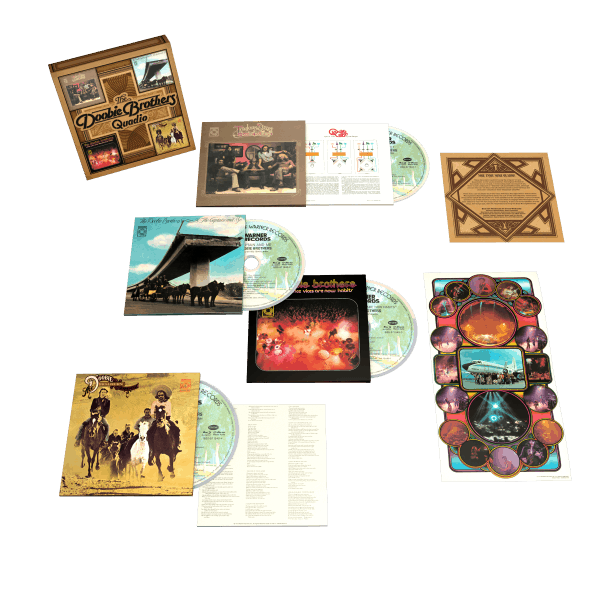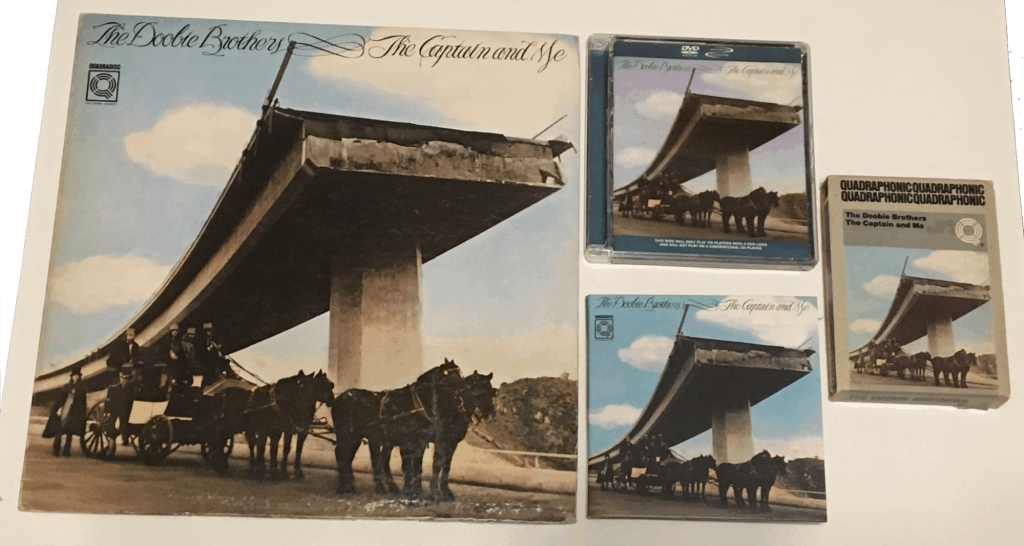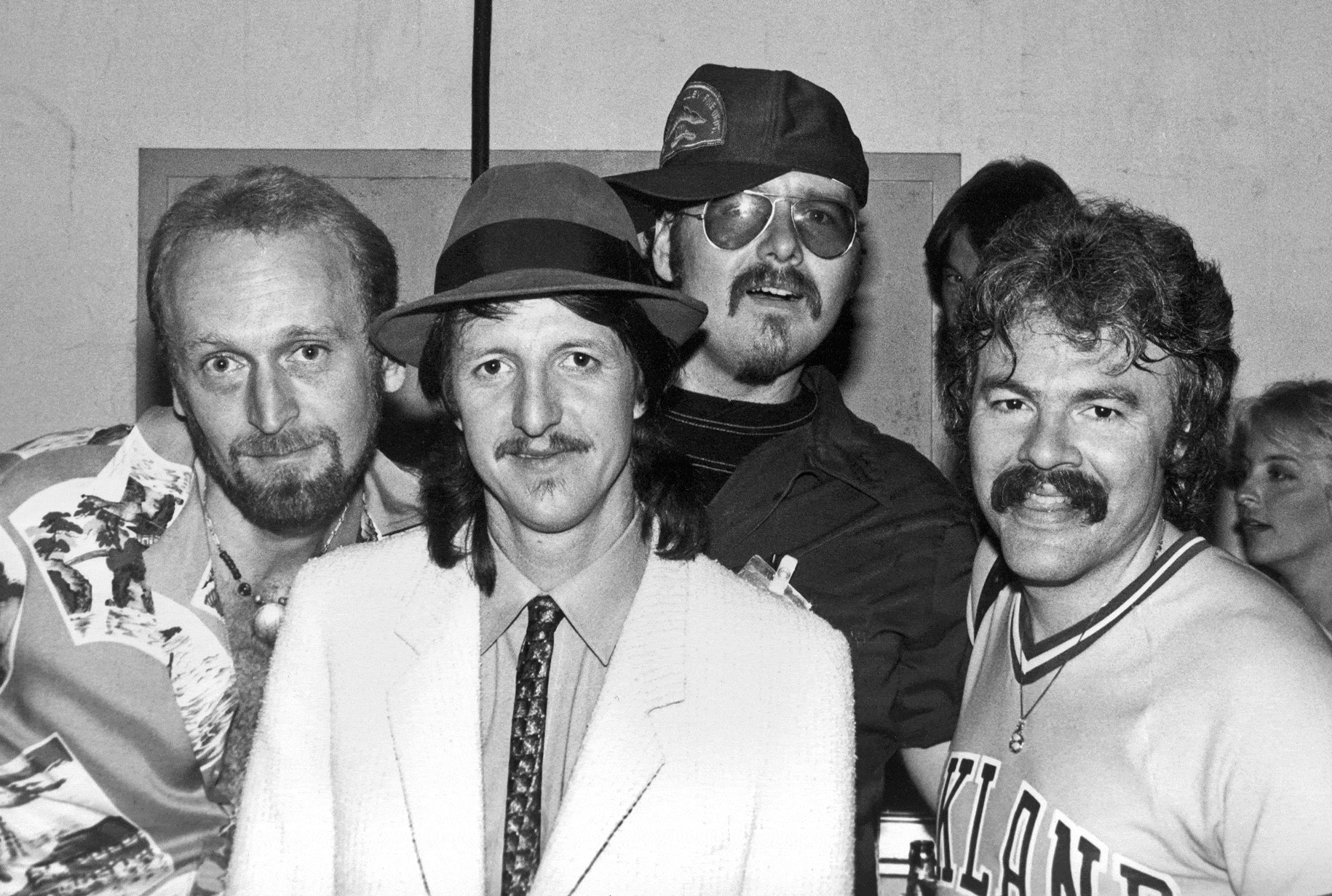For those who closely follow immersive music releases, one of the most interesting trends over the last several years is the celebration and reissue of 1970s quadraphonic mixes. Hundreds of popular albums were remixed to quadraphonic in the early-to-mid ‘70s, but consumers ultimately rejected the technology due to the cost of the extra gear and confusion over competing vinyl formats. However, audiophile reissue labels such as Audio Fidelity, Dutton-Vocalion, and now Rhino Records are offering digital transfers of these old mixes on new optical multichannel formats such as Super Audio CD and Blu-Ray disc.
There seems to be a consensus in some audiophile circles that ‘70s quad mixes tended to be something of an afterthought, similar to the uber-wide stereo mixes of the early Beatles albums that were created without the band’s input. As a longtime collector of vintage quadraphonic albums and equipment, it’s my hope that this fantastic new box set from Rhino finally dispels that notion once and for all.
As with 2016’s Chicago Quadio set, the Doobie Brothers Quadio collects the band’s entire quadraphonic output in one place. Four Doobie Brothers albums, all of which featured original lead singer Tom Johnston, received quad remixes in the mid-70s: Toulouse Street (1971), The Captain and Me (1973), What Were Once Vices Are Now Habits (1974), and Stampede (1975). There are a multitude of hit songs scattered across these four albums, such as “Listen To The Music,” “Jesus Is Just Alright,” “Long Train Runnin,’” “China Grove,” “Black Water,” and “Take Me In Your Arms.”

It’s immediately apparent that these mixes were meant to be played back on four identical, full-range floorstanding speakers. “Listen To The Music'' opens with the acoustic guitar in the front right speaker, mirroring the stereo mix, but quickly blasts into full immersion with the bass guitar suspended directly behind the listener’s head. Throughout all four albums, both the bass guitar and drum kit often appear completely isolated in the speakers. There are even a few passages with the lead vocals in the rears!
Across the entire set, nearly every song features absolute separation of the various instruments and voices between the front and rear soundstages. “Black Water” sounds absolutely amazing in quad, with the listener effectively placed right in the middle of the a capella breakdown. “Road Angel” is another highlight, with twin guitar solos and drum kits dueling in the rear speakers.

Immersive music fans may recall that The Captain and Me was previously released on DVD-Audio in 2001, featuring a new 5.1 remix by legendary engineer/producer Elliot Scheiner. There are a multitude of differences between the 1973 quadraphonic mix and the 2001 5.1 remix, in terms of both tonal balance and how the instruments have been distributed throughout the surround field. For instance, the quad version of “Evil Woman” has Johnston’s lead vocal emanating from the rear speakers, whereas it comes from upfront in the newer 5.1 mix. “Without You” in quad has both drummers isolated in the rear speakers, while the 5.1 places one drummer in the front speakers and the other across the rear stage.
To my ears, the higher frequencies on the new quad Blu-Ray seem a bit over-emphasized in comparison to the old 5.1 DVD-A. As the listener, it’s impossible to say whether this comes down to the original sound of the ½ inch, 15 IPS four-channel master tape or the equalization curve applied by Mastering Engineer Craig Anderson.
Overall, I wouldn’t hesitate to recommend the Doobie Brothers Quadio to all fans of immersive audio. These decades-old quadraphonic mixes are incredible demonstrations of all the possibilities that surround music has to offer. Just be prepared to hear a lot of sound coming from behind!

